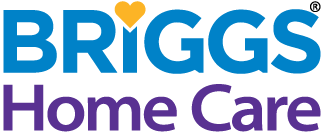How Does Home Care Cater To The Diverse Needs Of Disabled Individuals Successfully?
Inclusion is a pivotal aspect of ensuring that home care services effectively meet the diverse needs of disabled individuals. From tailored care plans to specialized equipment and trained staff, home care providers play a crucial role in supporting individuals with disabilities in their day-to-day lives. By understanding the unique challenges faced by each individual and implementing personalized care strategies, home care services can offer a safe, supportive, and inclusive environment for disabled individuals to thrive. Let’s probe into the ways in which home care caters to the diverse needs of disabled individuals successfully.
Key Takeaways:
- Customized Care Plans: Home care services successfully cater to the diverse needs of disabled individuals by creating personalized care plans tailored to each individual’s unique requirements and preferences.
- Qualified and Trained Caregivers: A critical aspect of successful home care for disabled individuals is having highly trained and qualified caregivers who understand the specific needs of each individual and ensure they provide appropriate care and support.
- Adaptable Services: Home care services for disabled individuals are successful in catering to diverse needs by offering adaptable services that can be adjusted based on the changing requirements and conditions of the individual, providing flexibility and personalized support.
Tailoring Home Care to Individual Needs
The Importance of Personalized Care Plans
Care for disabled individuals should always be personalized to their specific needs. Personalized care plans consider each individual’s unique challenges and requirements, ensuring they receive the best possible support and assistance tailored to their circumstances. By creating personalized care plans, home care providers can address the individual’s specific needs and preferences, promoting their well-being and quality of life.
Matching Caregiver Expertise to Client Needs
Client needs vary greatly when it comes to home care for disabled individuals. Matching caregivers’ expertise and skills to each client’s specific requirements is crucial. Whether it is specialized medical care, assistance with daily activities, or emotional support, caregivers need to be equipped to cater to their clients’ diverse needs effectively.
To ensure successful matching of caregiver expertise to client needs, home care agencies must take into account factors such as the client’s medical condition, mobility limitations, communication preferences, and any specialized care requirements. By carefully assessing these factors, home care providers can assign caregivers who are best suited to meet the individual needs of each client, promoting a positive and supportive caregiving experience.
Comprehensive Services in Home Care
Daily Living Assistance and Adaptive Equipment
As a disabled individual, you deserve to live comfortably and independently in your own home. With the help of home care services, daily living assistance can be provided to support you in tasks such as dressing, bathing, grooming, and meal preparation. Additionally, the use of adaptive equipment such as grab bars, shower seats, and mobility aids can be instrumental in enhancing your quality of life and promoting safety within your home environment.
Health and Medical Care Coordination
Daily management of health conditions can be overwhelming, but home care services can facilitate the coordination of health and medical care for disabled individuals. Skilled professionals can help schedule appointments, manage medications, and communicate with healthcare providers to ensure comprehensive and personalized care. With a focus on preventive measures and early intervention, home care can help maintain optimal health and well-being.
Coordination between various healthcare providers, including physicians, therapists, and specialists, can ensure that all aspects of your health are taken care of. This holistic approach to care aims to address your unique needs and preferences, providing you with a tailored plan that promotes your overall health and independence.
Overcoming Challenges in Home Care
Ensuring Effective Communication
Ensuring effective communication is crucial in providing quality care to disabled individuals in a home setting. Caregivers must understand each individual’s unique communication needs and adapt their communication style accordingly. This may involve using alternative communication methods such as sign language, picture boards, or assistive technology to effectively communicate with those who have speech impairments or communication disorders.
Addressing Accessibility and Mobility Issues
Ensuring accessibility and addressing mobility issues are key challenges in caring for disabled individuals. Caregivers must prioritize creating a safe and accessible environment that allows individuals to move around independently. This may involve modifying the home environment by installing ramps, handrails, grab bars, or removing barriers to ensure ease of movement for individuals with physical disabilities.
Another vital aspect of addressing accessibility and mobility issues is providing assistive devices such as wheelchairs, walkers, or mobility scooters to help individuals maintain their independence and facilitate their daily activities.
The Role of Technology in Enhancing Home Care
Assistive Technologies for Independent Living
Technology plays a vital role in helping individuals with disabilities live more independently. Various assistive technologies such as smart home devices, voice-activated assistants, and specialized software cater to the diverse needs of disabled individuals. These assistive technologies not only enhance the quality of life for the disabled but also provide them with greater autonomy and control over their environment.
Remote Health Monitoring and Telecare Solutions
Monitoring the health and well-being of disabled individuals is crucial for ensuring their safety and timely intervention in emergencies. Remote health monitoring and telecare solutions utilize advanced technology such as wearable devices, sensors, and remote communication tools to monitor vital signs, daily activities, and medication schedules from a distance. This proactive approach enables caregivers to provide immediate assistance and support, thereby improving the overall quality of care.
Remote health monitoring and telecare solutions not only offer real-time monitoring but also facilitate communication between the disabled individual and their caregivers or healthcare providers. Through video conferencing, messaging platforms, and mobile apps, caregivers can remotely assess the condition of the individual, provide medical advice, and coordinate care plans effectively. This virtual connection bridges the gap between the disabled individual and the healthcare team, ensuring continuous support and personalized care.
Flexible Care for a Better Life
Following this discussion, it is evident that home care is a crucial and successful solution in catering to the diverse needs of disabled individuals. By offering personalized care plans, tailored support services, and a comfortable environment, home care enables disabled individuals to maintain their independence and quality of life. The flexibility, accessibility, and individualized care provided by home care agencies allow disabled individuals to receive the assistance they need while still being able to live in their own homes. With the right support and resources in place, home care has proven to be an effective and empowering option for people with disabilities to thrive and lead fulfilling lives.
FAQ
Q: How does home care help cater to the diverse needs of disabled individuals?
A: Home care agencies provide personalized care plans tailored to the specific needs of each individual, ensuring services are comprehensive and effective.
Q: What types of services are typically offered by home care providers for disabled individuals?
A: Home care services may include assistance with activities of daily living, medication management, transportation, meal preparation, and companionship to address the diverse needs of disabled individuals.
Q: How do home care providers ensure cultural competence and sensitivity in their care for disabled individuals?
A: Home care agencies train their staff to be culturally competent and sensitive to the diverse backgrounds and identities of their clients, ensuring inclusive and respectful services.
Q: How can home care services be customized to accommodate the unique preferences and requirements of disabled individuals?
A: Home care agencies conduct thorough assessments to understand the preferences and requirements of each individual, allowing for the customization of services to meet their specific needs and goals.
Q: How do home care providers promote independence and empowerment for disabled individuals in their care?
A: Home care providers prioritize the autonomy and self-determination of disabled individuals, offering support and assistance that empowers them to live life on their own terms while maintaining their dignity and freedom of choice.






